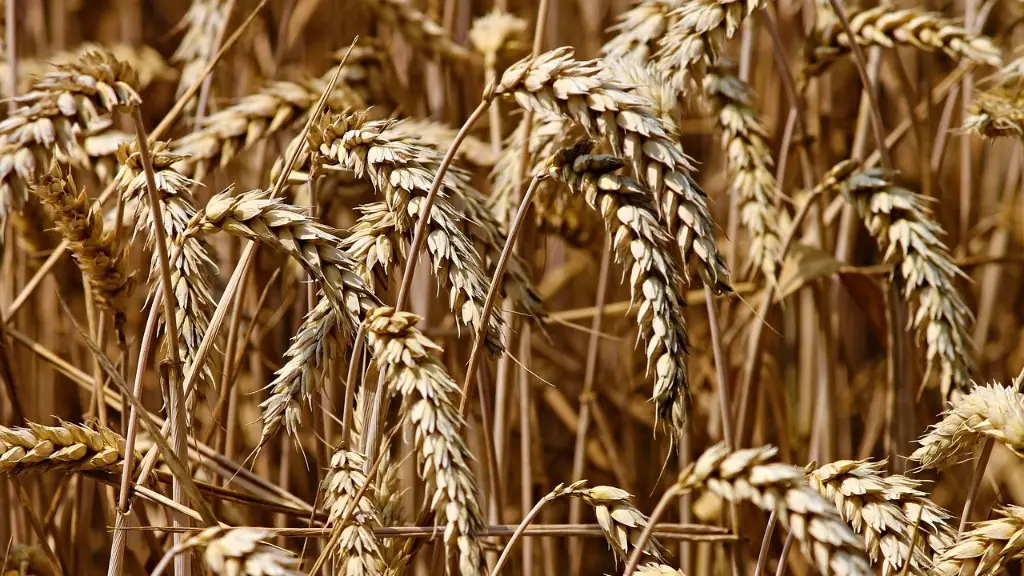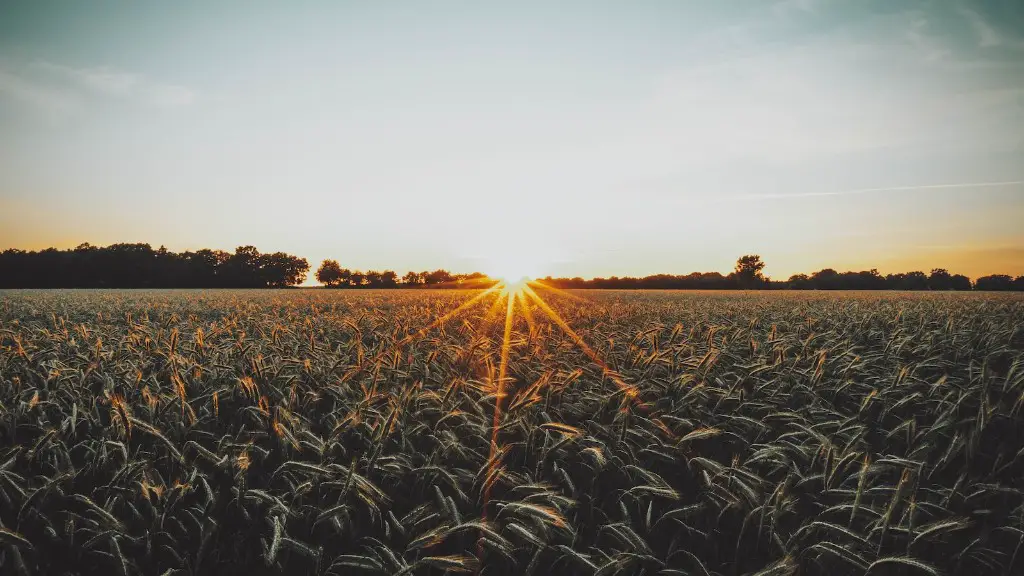Agriculture is the science and practice of cultivating the soil, processing crop and livestock production, and the ways of managing plants and animals for sustenance and economic gain. The earliest evidence of agriculture dates back to 12,000 years ago, as settled farming developed in various regions around the world. In modern times, agricultural technology has increased food production with the use of machines, pesticides, and fertilizers, allowing increased population growth and improved nutrition. The growth of the global population has led to an increased demand for food, and the modern agricultural industry has become more efficient in meeting those needs. This industry involves the production of food and fiber, along with the care and management of animals and soil. It also entails processing and packaging of food, and the distribution of these products.
Types Of Agriculture
Agriculture can be divided into two main categories: traditional and intensive. Traditional agriculture is labor-intensive, relying on the use of manual labor and animal labor, and it is more prevalent in rural areas than in urban settings. Intensive agriculture is mechanized, relying on modern agricultural technologies, such as tractors, fertilizers, and pesticides, to increase food yields and reduce labor costs. This kind of agriculture is more prevalent in developed countries, particularly in Europe and North America. Traditional and intensive agriculture both have their merits and drawbacks, and different kinds of agricultural techniques are best used in different types of climates and soils.
Organic Agriculture
Organic agriculture is an increasingly popular type of agriculture that uses no synthetic pesticides and fertilizers. This type of agriculture is based on the principles of holistic management, and it seeks to cultivate land using natural methods and sustainable practices, such as crop rotation, integrated pest management, and the use of organic soil amendments. Organic agriculture also seeks to maintain healthy soil, promote biodiversity, and reduce energy use. Organic agriculture has proven to be successful in the past, and it is becoming increasingly popular as consumers seek to buy food that has been grown with minimal negative environmental impact.
Agricultural Economics
Agricultural economics, also referred to as agronomics, is concerned with the economics and management of agriculture. This field looks at the factors that affect crop and livestock production, as well as the decisions that farmers must make in order to increase their profits and reduce costs. Agricultural economics is also concerned with the role of government in agriculture, and it is focused on understanding the economic forces that shape the agricultural industry and its growth.
Climate Change And Agriculture
Climate change has had a profound impact on the agricultural industry, resulting in drought, floods, and other extreme weather conditions. These changes have made it more difficult for farmers to maintain and grow their crops, resulting in diminished yields and poorer quality products. Climate change has also had a direct effect on animal health, as extreme temperatures can cause disease and death. In order to minimize the negative effects of climate change and ensure the future viability of the agricultural industry, agricultural scientists, producers, and government bodies are beginning to focus on the development of agricultural practices and technologies that can better respond to the impacts of climate change.
Modern Technologies And Agriculture
Modern technologies are increasingly being used in the agricultural industry to improve both efficiency and yields. Machines are being used to help with planting, plowing, harvesting, and other manual labor tasks, while newer technologies, such as hydroponic and aeroponic systems, help to increase yields and reduce water use. In addition, precision farming techniques use modern surveying and monitoring techniques to improve farming and land management. In addition, information technology is being used to monitor crop and livestock health and maintain the quality of production.
Agricultural Education
Agricultural education has become increasingly important in the modern agricultural industry, as it prepares and educates students on the latest advances in the industry. Programs in agricultural education teach students how to develop new and innovative solutions to agricultural problems, as well as how to maximize yields and optimize efficiency. Agricultural education also seeks to inspire future generations of agricultural workers.
Sustainable Agriculture
Sustainable agriculture combines the principles of traditional agriculture, organic agriculture, and modern technologies and systems. This type of agriculture seeks to reduce the negative impacts of agricultural production on the environment and conserve natural resources, while also increasing yields and production. Sustainable agriculture relies on the integrated use of agroecosystems, which combine plants, animals, soil, and water management to create balanced systems that are capable of sustaining production and generating healthy yield.
Local And Regional Products
Local and regional products have become increasingly important in the modern agricultural industry. As people become more concerned with the environmental impacts of their food choices and the ethical implications of global food production, they have become attracted to locally grown and produced products. This is because local and regional products are far more likely to have been produced in ways that are environmentally friendly and sustainably produced. Supporting local farmers also promotes economic development and employment opportunities in rural areas.
Organic Certification And Labeling
Organic certification and labeling has become a major tool for consumers to ensure that their food products are grown and produced in ways that are both safe and sustainable. Organic certification is a process of verifying that agricultural products have been produced organically, which is based on organic standards that have been set by regulatory bodies. Organic labels display information such as the country of origin, the organic status of the product, and the organic production methods that have been used. This information allows consumers to make more informed choices about their food products and provide continued support for organic agriculture.
Agricultural Research And Development
Agricultural research and development is an essential part of the agriculture industry and has been instrumental in helping to improve its productivity and sustainability. Research and development in this area involves studying the impact of agricultural practices and technologies on the environment and developing new ones that are better able to manage resources, reduce inputs, and increase yields. Research and development efforts seek to develop new and better products, technologies, and methods of production, which can be disseminated through education, communication, and outreach.


